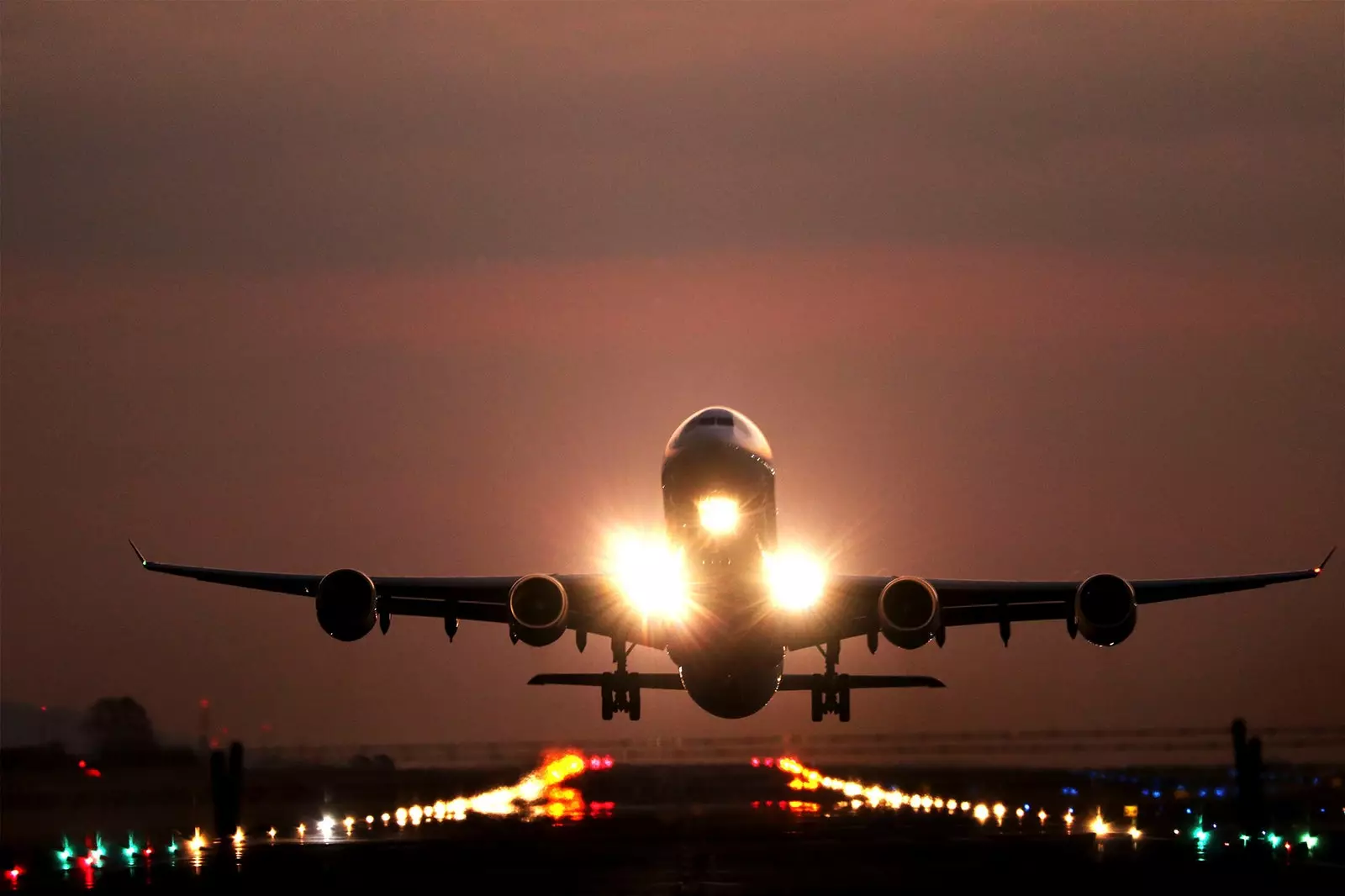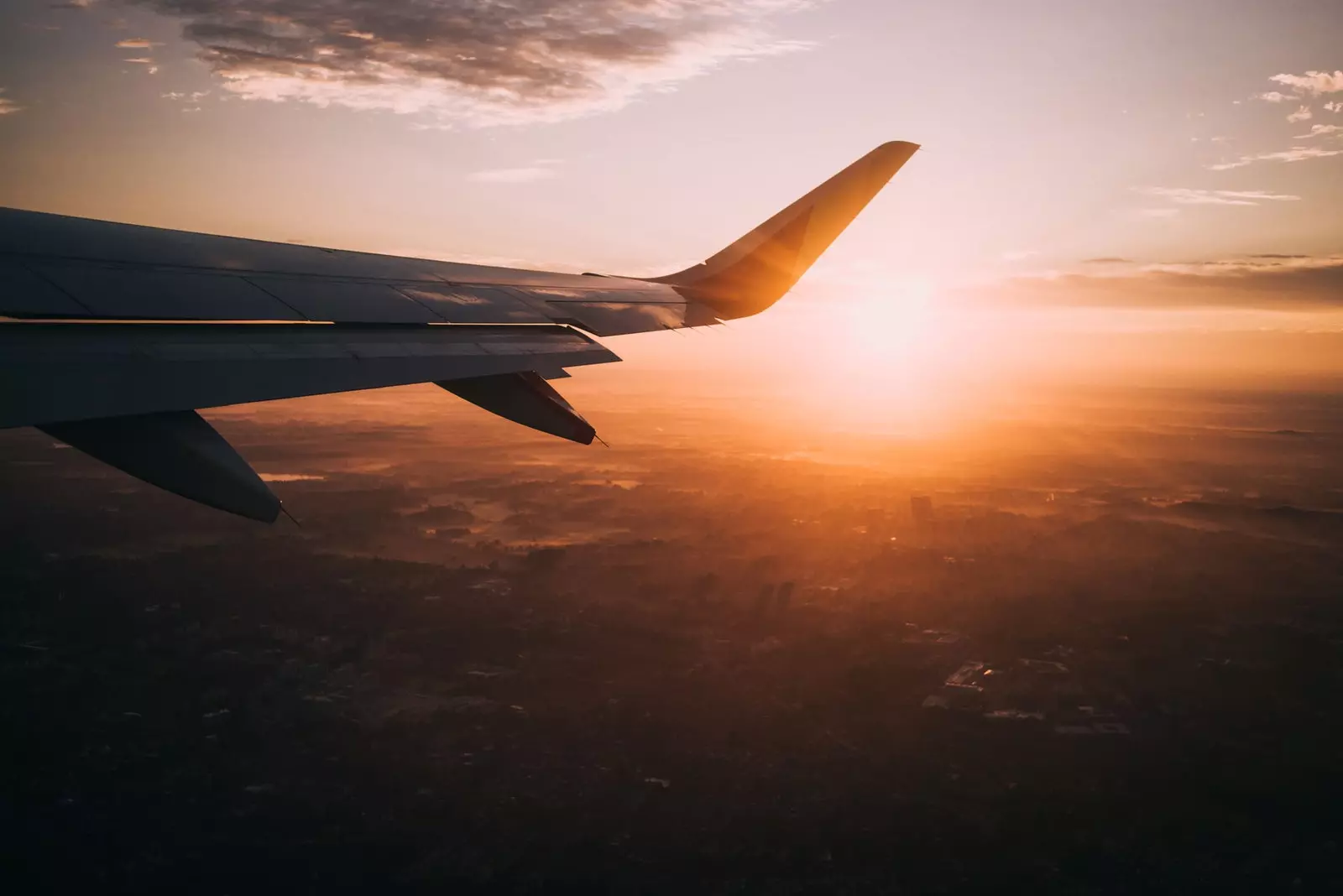Almost six years after Greta Thunberg will sign up for trend "flygskam” , translated as "shame of flying", and with this it will manage to put practically the entire air sector in check, it is the airlines who continue the game showing that it may be possible, or almost, to fly without contaminating.
The turn to a more sustainable industry by the main players in the sector, both airlines and manufacturers, is now a reality. These are the top airlines that are prioritizing a greener, greener and more sustainable future.

The turn towards a more sustainable industry.
PLASTIC FREE
The airline easyjet continue your personal war on plastic and, despite the fact that the road will be long until its complete elimination, they have won several battles of which the company is proud. One of the most recent, and also most original, has been the presentation of a new uniform for your crew Made from recycled plastic bottles.
Made by Tailored Image Using high-tech material, the new uniform is made from 45 plastic bottles and can already be seen on board their planes. With this, the company prevents around half a million plastic bottles end up as waste each year.

Is it possible to change the way we travel?
Tina Milton, Director of Cabin Services at easyJet, says that they are really “excited to debut this new uniform made from recycled plastic bottles and to introduce it to our pilots and fellow cabin crew. We know that sustainability is an important issue for them and also for our clients.”
It is not the only airline to deal with plastic. In April 2019, Etihad Airways became the first major airline to complete a long-haul flight without no single-use plastic on board after revealing that it had been using a whopping 27 million single-use plastic coffee cup lids per year.
But going back to easyJet, this initiative is added to other measures that the airline already has in place, such as being the first major airline in the world to operate carbon neutral flights throughout your network, offsetting fuel emissions used on all its flights through schemes accredited by two of the highest verification standards, Gold Standard and Verified Carbon Standard.
Also in Milton's words, "the climate change is a problem for everyone and at easyJet we look at all parts of our operation to identify where we can reduce carbon emissions and waste”.
Carbon offsetting is only a stopgap measure while new technologies continue to develop, so easyJet and other airlines continue to support innovative technologies such as development of hybrid and electric/hydrogen aircraft , and collaborating with other companies in the sector to reinvent and decarbonize aviation in the long term, a commitment that IATA wants to see fulfilled shortly, with a goal of 50% CO2 reduction by 2050.
GOODBYE CO2, GOODBYE
As confirmed by SimpleFlying, during 2019 (2020 is not a year to remember in the airline industry), flights produced 915 million tons of carbon dioxide , despite the fact that today's jet planes are more than 80% more fuel efficient than the first planes of the 1960s. IATA has committed to the growth of carbon-neutral airlines from next year and one 50% reduction in CO2 emissions by 2050.
Faced with this objective, there are not a few airlines that have launched compensation programs of carbon emissions, such as the Push for Change of Finnair . However, the question of how effective all this is is too great in the middle of 2021, especially since now the priority of the sector is recover from one of the worst crises of your story.
Air France and KLM go a little further in their commitment to sustainability and sit down paving the way for cleaner aviation. How? Signing agreements with companies (corporate clients) so that they contribute to its SAF (Sustainable Aviation Fuel) program . It is these companies that contribute money to the program, which is destined exclusively for the supply and use of sustainable fuel for aviation.
A different topic from that of CO2 compensation but that also reinforces its environmental commitment where it is assumed that the theme of the sustainability in the trips it is a commitment of all Not just airlines.
When you are an airline that flies to more than 130 destinations around the world every day, each action is added . Under this premise, the airline Singapore Airlines it shows the world, and does so in detail, all the work that is being carried out within the company in favor of sustainability. The airline not only wants you to fly better – its quality standards are extremely high – but also in a more ecological way.
Hence the replacement of plastic on board with other materials such as wood , the digitization of reading on board, the increase in efficiency of fuel or catering waste reduction are just the tip of the iceberg of a series of measures that include even allowing passengers to compensate each flight.
YOUNG FLEET WITH FEWER EMISSIONS
The continuous update of the fleets to planes more modern and fuel-efficient it is also a big step for everyone. And while Air France announces the arrival of its first Airbus A220 and the purchase of 60 units of this new and sustainable aircraft model as part of its fleet renewal policy, Finnair signs a letter of interest for 20 electric airplanes from Heart Aerospace.
The Finnish company, which has the goal of being a carbon neutral airline by 2045, thus reinforces its commitment to electric aviation and sustainability in aviation with this letter of interest for the electric plane ES-19 from the Swedish startup Heart Aerospace, currently under development and that it is expected to be available for its first commercial flights in 2026.
Finnair could acquire up to 20 of these new planes, with capacity for 19 passengers each and one fully electric range of 400 km , for use on the airline's regional routes.
Anne Larilahti, vice president of sustainability at Finnair, has assured that "the electric aviation will be one of the key tools for the future of aviation. It will help promote responsible and sustainable aviation, especially on short routes, and Finnair wants to actively participate in the development and implementation of new technologies that allow to fly without carbon emissions”.
The future of aviation is already here.
